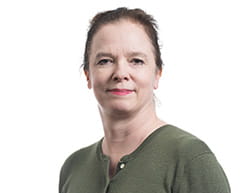Over the last six months communities across the world
have been through unprecedented change and some of the toughest periods in
living memory.
Putting prosperity back into our communities
The built environment has influenced everyone's lives and lessons have been learnt. The importance of where and how we live and peoples mental health has never been clearer. Whilst we're not out of the woods yet I'm feeling optimistic that there's a deep and uniting murmur of change emerging with more and more people believing in the vision of stronger, integrated and sustainable communities with good quality places to live.
It's this belief in our ability to create that gets me out of bed in the morning. The link between thriving communities, an individual's mental and physical health and the built environment runs like a thread throughout our firm. It is what led us to the latest of our initiatives to understand how the built environment drives prosperity in cities and urban centres.
Inclusive growth
Launched last year as 'Positioning cities for prosperity,' we took time during lockdown to take a fresh look at the initiative and to build in some of the themes brought out by the current pandemic but also to address the rising consciousness of our need to protect the planet. Reflecting this shift, the initiative is now entitled: 'Positioning cities for inclusive growth - building for people, place and planet.'
Before the launch we undertook research with YouGov to investigate what the residents of Birmingham, Exeter, Manchester and London thought about prosperity. We are re-running that research to see how those views have changed over the last year and will present our findings at our forthcoming digital City Exchanges this autumn.
The City Exchange events bring together leaders across communities and businesses to look at how we create the towns and cities of the future as well as examine real estate's role in providing the platform for society to thrive. The first City Exchange took place in Manchester in November 2019 followed by Exeter in January 2020.
Just two months after our Exeter City Exchange, lockdown was imposed with towns and cities becoming very different places and talking about prosperity felt at odds with the real hardships that many are experiencing. From our findings so far, the experience of lockdown is exacerbating many of the issues that our towns and cities are already facing: Cities appear to concentrate inequality, with a growing challenge around housing affordability and urban design choices that lock people out of the benefits cities can provide.
The division between those who have access to outdoor space and homes with rooms to work from as opposed to those in small flats with no outdoor space or indeed indoor space has been put under the spotlight. How can we create places with the focus on the long term resilience of the UK? How can we revitalise town and cities centre, investing and developing in a way that is inclusive?
Regeneration is often linked negatively to gentrification - pushing up values to the benefit of landlords but at the expense of existing communities.
You have to accept there will be a change in values but what you don't want to do is alienate that existing community, be that businesses or be residents.
Inclusive regeneration offers something to the neighbouring community, supports existing businesses and jobs. Developing something that benefits a broader range of people is potentially more economically sustainable and can help boost return in the longer term.
Hyperlocalism
There is a huge challenge with repurposing our High Streets but in approaching it from the standpoint of creating societal value you are changing the wider area which in turns benefits the high street. You are also more likely to create a place which is different and unique and not a clone town. Following Covid will localism triumph and cities suffer as people both work and shop locally?
Will there be more thought as to who benefits from regeneration in the future? Rather than cities of glass residential towers for wealthy investors will there be more focus on affordable homes in the widest sense? Is this realistic and achievable?
From a personal perspective, I come from a small town in Yorkshire called Dewsbury, an old mill town that has been in decline for many, many years, and where a lot of the residents feel left out of the economic growth enjoyed elsewhere in the country.
Our challenge to the industry is to ask: "How do you breathe life back into a town like Dewsbury which had a great market, it had a great town centre and now doesn't?" Does the period we have just been through give Dewsbury another chance? It's these kinds of personal and professional perspectives that we are seeking to understand to see how real estate can play a more active role in facilitating prosperity across the UK from the smallest village to the largest city.
I want this campaign to focus on how we can create towns and cities that are inclusive and are a gateway rather than barrier to equality, and prosperity.
Our digital City Exchange events will take place in October focussing on Birmingham and Midlands region and in November looking at London and the South East.
Please get in touch to find out more.
